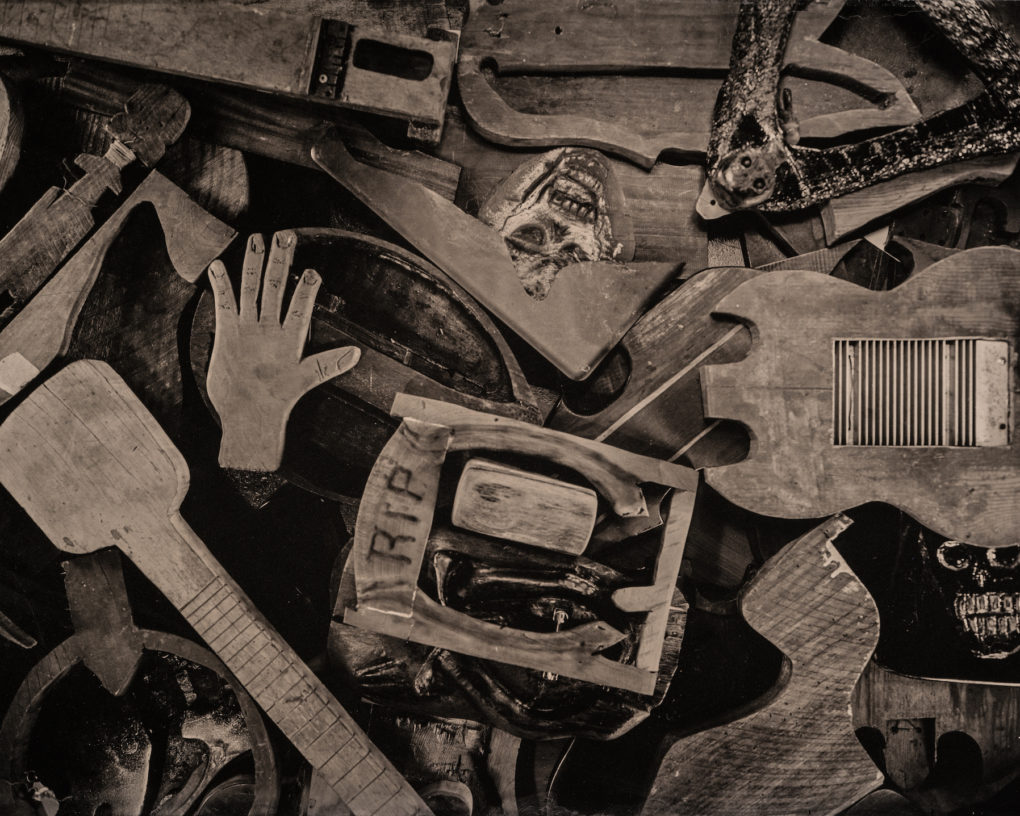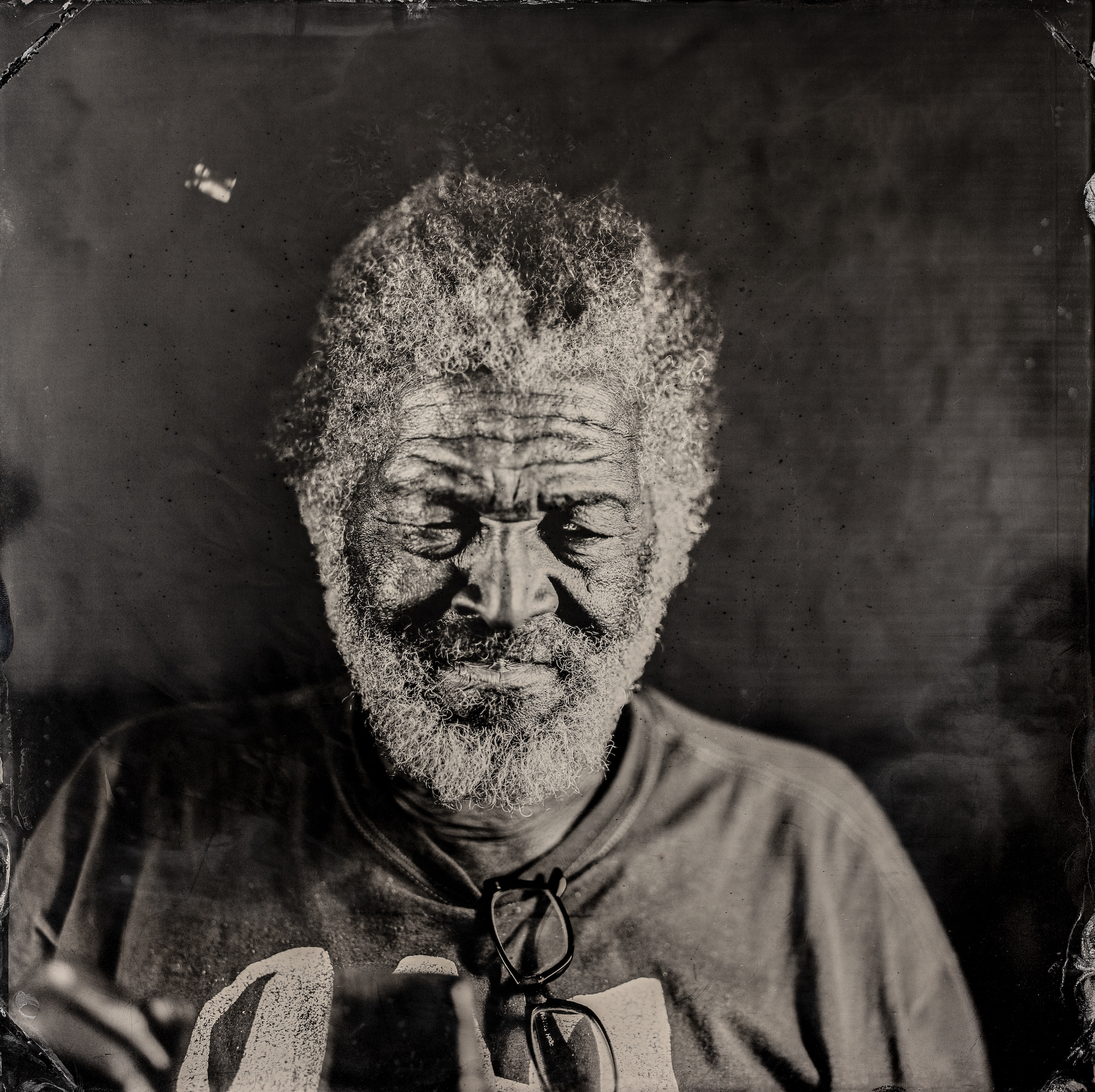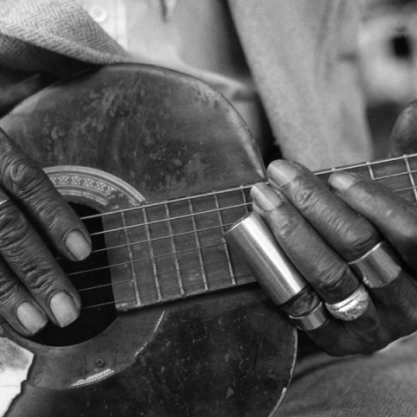The World According to Freeman Vines: Music in the Age of AI

By Tess Stogner.
In this era of rapid expansion of the presence of AI in our everyday lives, it can feel like we’re constantly playing catch-up, trying to grasp at the potential implications of the latest innovations. The rise of deep fakes featuring popular artists like Drake and The Weeknd are offering us a sneak peek into what’s coming for the music industry. But what exactly lies ahead remains obscure.
To gain some insight into these impending transformations and their implications for creators, I turned to Freeman Vines, an artist, luthier, and spiritual philosopher, to get his take on the evolving landscape of music creation.
“What people do about songs, all they do is sit down and contemplate how to change the words. There ain’t nothing new. Ain’t nothing that ever left the earth that ain’t been here before,” Vines began. “Everything we use, the food we eat, go right back in the ground and supply nutrients for the other food we eat.”
The idea that nothing is truly original isn’t a new concept; it dates back centuries. There is nothing new under the sun. However, it begs the question: What distinguishes real art from imitation?
According to Freeman, “You will have to talk to these folks and find out what motivates them. Cause you’ll find out a whole lot of it’s fake. People done got so sorry and lazy. That’s why they can’t think about nothing but murder,” he stated with conviction.
“People don’t ever think and concentrate. It’s too easy to just say, ‘Let me look at my phone and see where the jojo live at.’ Instead of saying, ‘Wow, did I turn here or there?’ And sit there and think and cultivate the mind.”
In an economy that relies on distraction, urgency and instant gratification, we can often undervalue the importance of deep thinking and concentration. It is too easy to reach for our phones and seek instant answers, instead of slowing down enough to engage in reflective contemplation. Freeman urges us to resist this trend and instead embrace introspection, allowing ourselves the time to let ideas steep.
For him, the real difference between AI creations and human creations is the process. It’s about investing time and effort into nurturing an idea and having a genuine motivation behind it.
Freeman firmly believes that “curiosity is what makes a person wise.” Nurturing curiosity for its own sake is what defines our humanity. It is through this curiosity toward the human experience, that we continue to write, sing, and carve out our reflections. Regardless of the proliferation of AI, our innate desire for connection and our search for commonality across our diverse experiences will endure.
“That’s how I mess with this wood on these guitars. Sit there and look at it and let the features of the wood talk to me,” Freeman shares.
“What is a man if all the money he took in and acquired, he never enjoyed not even one penny? He never knows what it is to listen to the trees sing and be happy about that.”
For as long as humans have been walking this earth, music has been the deep language of our experience, helping us tell stories not just about where we went, but how it felt to be there. When the creative process is hotwired by AI, we lose the story of the journey. At its core, music and performance are collective acts of witnessing our interconnectedness. If a song isn’t drawn from this human experience, how can it resonate when it’s performed?
It’s the rawness, imperfections, and personal connections that make music resonate with audiences on a profound level. AI may try to imitate, but it will never capture the spirit of roots music that connects us to our past, present, and future.


Get involved
& give back
The Music Maker Foundation is a 501(c)(3) nonprofit organization that depends on thousands of supporters. Together, we work to meet the day-to-day needs of the artists who create traditional American music, ensure their voices are heard, and give all people access to our nation’s hidden musical treasures. Please contribute or shop our store today.
